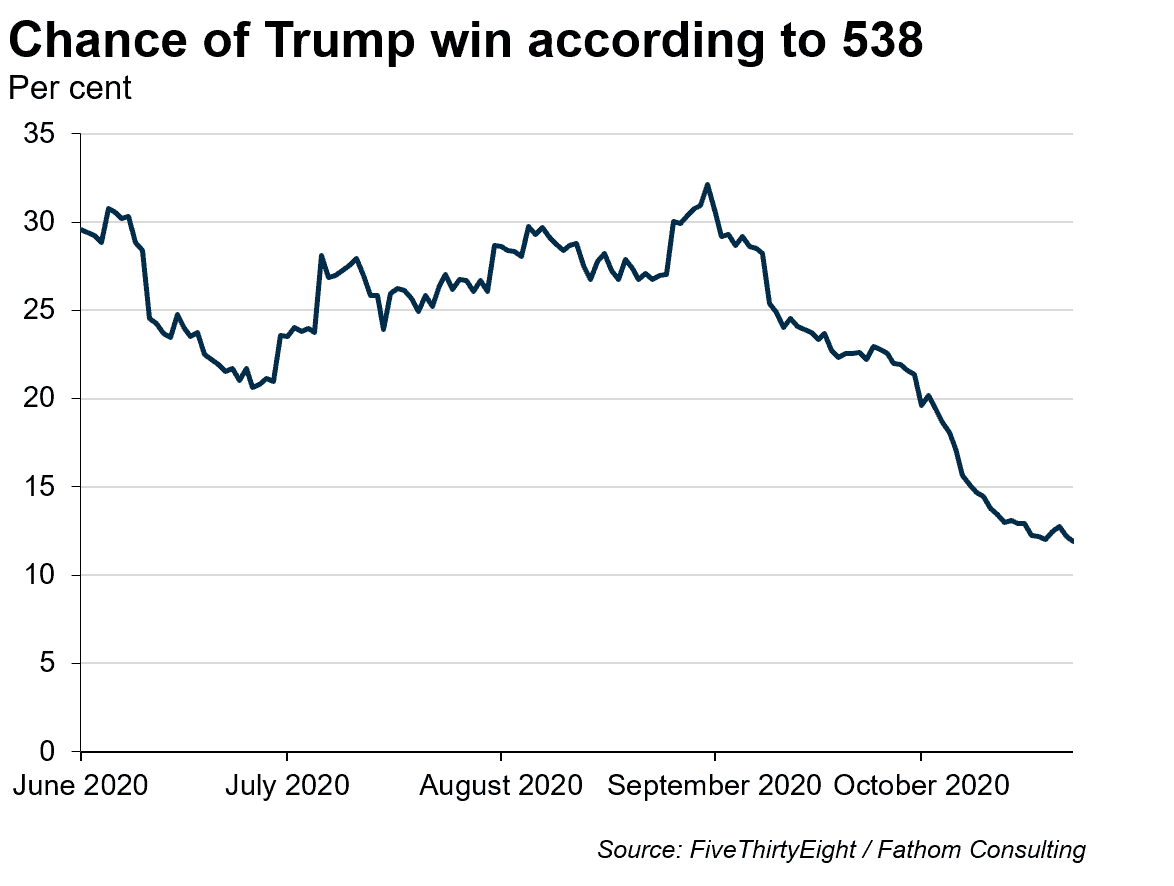A sideways look at economics
When asked to make a decisive call, economists are sometimes criticised for sitting on the fence. In our defence, there’s good reason for this: the world is uncertain. What happens will depend on a whole bunch of things, which are all subject to their own large uncertainties. On the one hand, this. On the other, that. Nonetheless, there are groups within the discipline who I’m willing to stereotype and make sweeping generalisations about. For example, some follow the ‘consensus’, closely watching the views of central bank officials and official forecasters, making sure never to stray too far from the received wisdom. On the other hand, there are ‘contrarians’. These people challenge the conventional wisdom, either on merit, or just to be different. The US presidential election is a little more than a week away. Here’s how to figure out which of these personality types you are:
The consensus follower:
You’re the type of person who likes to base your opinions on data and science. Sure, you were as stunned as anyone when Trump won in 2016. But within hours, you had already built a coherent narrative about why he did, linking together the fall of the Berlin Wall, and post-modern feminism. You refresh 538 regularly and adopt Nate Silver’s talking points as your own. You defend his modelling, despite not understanding it, pointing out that 30% was a much higher probability than anybody else was giving Trump in 2016. Secretly, however, you resent him, as you yourself mistook 70% on Clinton as a slam dunk, costing you a lot of money. This time, he’s giving Trump a 12% probability. You’re still not sure what this means. You point out that Biden is a strong favourite, but that things with a 12% probability happen around one in ten times! Your friends roll their eyes when you say this, and you try to move the discussion onto which counties will be key to the race in Georgia.
The contrarian:
You’re the type of person who doesn’t follow the pack. You loudly dislike Kanye West’s music and describe yourself as a ‘lockdown sceptic’. Rather than judging election outcomes using polls, which “have been wrong before”, you prefer to base your position on interesting counterintuitive narratives. There’s good news for you: the polls (and narrative) are pointing to a decisive Biden win, offering you the perfect opportunity to take the other side. You dismiss Nate Silver, who “should have retired in 2016”. Instead, you point out that President Trump pulled off a surprise four years ago, and suggest that there’s a real possibility that he could do so again. Your arguments are supported by credible but unfalsifiable claims: ‘shy’ Trump voters are embarrassed to tell pollsters that they like him, or there is a huge ‘enthusiasm gap’ between the candidates. Working-class whites was so 2016. This time, it’s African-American and Latino voters that will deliver Trump another electoral upset. When in doubt, you bring up the fact that nobody thought Brexit would happen either.
The unconstrained contrarian:
Same as above, however, the number of contrarians has increased over the past four years, making it trickier to stand out. Despite polls and political analysts both pointing to a Biden win, many of your friends are still bullish on Trump — much to your annoyance. Moreover, previous hopes of profiting off a Trump win are proving elusive, as the president’s odds on the betting markets remain stubbornly high. Your only hope is to take an even more extreme position. Nate Silver has discussed the possibility of a Biden landslide, and thinks Texas is in play. A Blue Wave? Too consensus. Instead, you double down on your call from 2016, arguing that Trump will win by an even bigger margin this time around. You place a bet on the Republicans taking back the House, and draft a #TrumpLandslide post, crossing your fingers that Nassim Taleb will ‘like’ it.
Which of these personality types is right for you? The safest place to be is the consensus. It’s the combined view of many smart people. Things become the ‘consensus’ for a reason. However, it’s also boring and will guarantee that you miss key inflection points. If you’re looking to impress, being contrarian is the way to go. You don’t lose much if you’re wrong (there was always a risk!), but reap outsized rewards if you’re right. People have come to appreciate this though, and being contrarian is an increasingly saturated market. This leaves the unconstrained contrarian as a final option. Proceed with caution: without established credibility, adopting the views of an unconstrained contrarian may worry your friends and family and could lead to permanent damage to your reputation. If you have a strong track record, however, go for it. Let’s say you predicted the Global Financial Crisis, or have been wearing a mask in public since SARS, people remember that. You now have free rein to say whatever you want. Why not go full unconstrained contrarian and argue that Kanye West’s music is overrated but his presidential chances are underrated?
Whichever position you adopt, good luck and happy election countdown!
